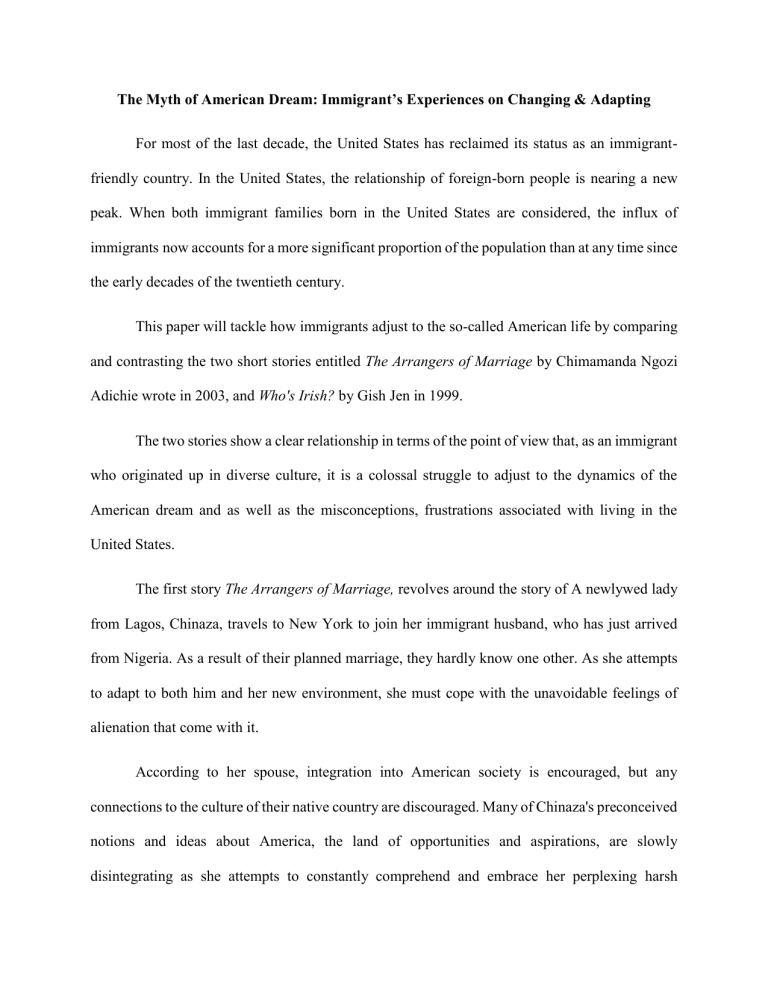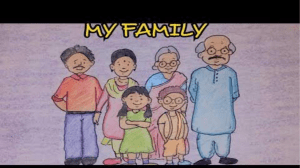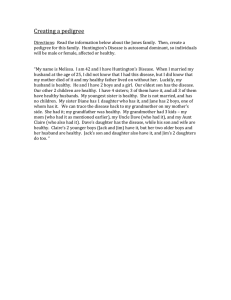Immigrant Experience in America: Cultural Adjustment Essay
advertisement

The Myth of American Dream: Immigrant’s Experiences on Changing & Adapting For most of the last decade, the United States has reclaimed its status as an immigrantfriendly country. In the United States, the relationship of foreign-born people is nearing a new peak. When both immigrant families born in the United States are considered, the influx of immigrants now accounts for a more significant proportion of the population than at any time since the early decades of the twentieth century. This paper will tackle how immigrants adjust to the so-called American life by comparing and contrasting the two short stories entitled The Arrangers of Marriage by Chimamanda Ngozi Adichie wrote in 2003, and Who's Irish? by Gish Jen in 1999. The two stories show a clear relationship in terms of the point of view that, as an immigrant who originated up in diverse culture, it is a colossal struggle to adjust to the dynamics of the American dream and as well as the misconceptions, frustrations associated with living in the United States. The first story The Arrangers of Marriage, revolves around the story of A newlywed lady from Lagos, Chinaza, travels to New York to join her immigrant husband, who has just arrived from Nigeria. As a result of their planned marriage, they hardly know one other. As she attempts to adapt to both him and her new environment, she must cope with the unavoidable feelings of alienation that come with it. According to her spouse, integration into American society is encouraged, but any connections to the culture of their native country are discouraged. Many of Chinaza's preconceived notions and ideas about America, the land of opportunities and aspirations, are slowly disintegrating as she attempts to constantly comprehend and embrace her perplexing harsh challenge. It is a lonely battle since her husband, who most likely had his integration difficulties when he first arrived in the United States, cannot understand or empathize with what she is dealing forward at this point. Dave says: "Speak English. There are people behind you." while pulling away from his wife and reminding her that the Americans used the term "elevator" and not lift "lift." Dave's notion of integrating into America is that the only way to blend in is to speak and consume as an American and use American terminology and ignore any differences between cultures, as shown in those instances. As a foreigner, he believes that he will lock the community and be considered an outsider if Americans see him. When Dave hears Chinaza speaking in Igbo at a mall, he gets nervous and tells her to "speak English, and there are people behind you." Moreover, this is an example of Dave's concept of fitting into America, in which he believes that hearing them speak English would make them seem less alien to other Americans. "I made coconut rice on Monday to make up for the eating out. I wanted to make pepper soup too; the kind Aunty Ify said softened a man's heart. But I needed the uziza that the customs officer had seized; pepper soup was just not pepper soup without it. I bought a coconut in the Jamaican store down the street. I spent hours cutting it into tiny bits because there was no grater. I then soaked it in hot water to extract the juice. " On this part of the story, we can see the fact that Ofodile insists on Chinaza speaking English and cooking American cuisine means she no longer can engage with her culture, even in the warmth from her own home. Moreover, Chinaza's willingness to comply with Ofodile's desires, on the other hand, shows her struggles in their connection since she cannot advocate for herself. Lastly, Chinaza remains at home all day to watch the heavy snowfall for the first time. The next night, after Ofodile eventually returns, she asked regarding her working visa, which he gently reveals that he had married a lady to get his permanent residency and that the lady is now "causing problems." Even though Chinaza is surprised to learn that Ofodile has tied the knot, he maintains that it is standard practice in the United States. China is confident that she had the responsibility to know about the affair before the couple got engaged. Therefore, as a result of Ofodile's confession, it is unclear if Chinaza's aunt and uncle were aware of his American marriage when they planned Chinaza's wedding. If even they were swept up in the imagined American dream, it's conceivable that this mistake or intentional absence was the consequence of their obsessive pursuit of it. When Ofodile refuses to admit that he has violated his wife's confidence, he demonstrates the strength of his position. As we go to the next story entitled Who's Irish? This story has a conflict of parenting methods between the traditional Chinese grandma and her first American children. According to her grandma, Sophie's Irish temperament has to be tempered by her Cultural roots to be a more respectable woman. This book is from the grandmother's point of view, who is the protagonist of the story. Her opinions on gender and ethnicity are diverse, and she expresses them in various ways, including how certain ethnicities and gender identities do better than in others. Her primary concerns are with her daughter Natalie and the methods she uses to raise her daughter Sophie. Across the story, the grandmother conveys her disapproval of Americans in no uncertain terms. When she does this, she tends to make racial remarks and be prejudiced. Throughout the story, she describes Sophie as having a "lovely Chinese side gobbled up by her untamed Irish half." She frequently describes characters based on the hue of their skin. “Even for the black folks performing effectively at the moment,” she says, implying that the black area is in an ideal financial environment than everyone. “You spank her, she’ll stop, I say another day. But they say, Oh no. In America, parents not supposed to spank the child. It gives them low self-esteem, my daughter says.” As a result, the grandmother ends up "spanking" Sophie, even though both her daughter and son-in-law had advised her just not to. It was lucky that no break occurred in the mother and daughter's "bond." The beating was also thriving in that it rectified the children's conduct. But, most significantly, Natalie did not abandon her mother, ignoring that her brother-in-law had inquired when she would tell her grandmother to go back to China. The story is a fascinating storyline that raises significant problems that need to be addressed. It's a confusing story to browse. We are inclined to the narrator because of the story's tragedy, even though she is against several American and Irish beliefs. Despite this, we ought to be aware of her racial thoughts. Even though the wording is biased, it conveys an essential point. There is much to be said about how we handle our interactions with people who have different cultural and generational backgrounds than ourselves. To conclude, the two stories of cultural struggles exacerbated by cultural differences reflect significant strains in contemporary American life, including women having career ambitions, growing older and the family, in-law disharmony, childcare services, and children's reactions to the strain of the contemporary family situation, among other topics. The writers take no sides in developing these topics, which are done with fun and empathy.



